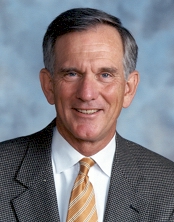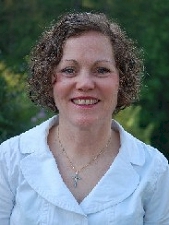Escape Fires and Healthcare Leadership
Tuesday, July 9th, 2013 Some say that health outcomes are not keeping pace with the costs of healthcare while this system is by design, more “disease care” than healthcare and prevention. What can be done about an entrenched healthcare system? Dr. Pamela Ross, a featured physician in the movie documentary Escape Fire: The Fight to Rescue American Healthcare, gives an inspiring take on lessons learned. The program was presented on June 12, 2013 and was moderated by SSV President Sue Liberman.
Some say that health outcomes are not keeping pace with the costs of healthcare while this system is by design, more “disease care” than healthcare and prevention. What can be done about an entrenched healthcare system? Dr. Pamela Ross, a featured physician in the movie documentary Escape Fire: The Fight to Rescue American Healthcare, gives an inspiring take on lessons learned. The program was presented on June 12, 2013 and was moderated by SSV President Sue Liberman.
[display_podcast]
Pamela A. Ross, MD, FACEP, is an associate professor of Emergency Medicine and Pediatrics at the University of Virginia Health System, and founding CEO of Holistic Medical Consultants. She bases her holistic medical principles and practice on the belief that there is an unbreakable connection between the mind, body and spirit.
A native of rural Decatur, Tennessee, and her parent’s oldest child, Dr. Ross’ exceptional perceptive skills and mental capabilities were realized at an early age. By the time she reached the fourth grade, she was engaged in various public speaking opportunities through 4-H Club, the nation’s largest youth development organization. Public speaking was a skill that Dr. Ross evidently mastered early, but it was her mother’s illness that sparked her interest and curiosity in the study of medicine. Determined to aid in her mother’s care, Dr. Ross focused her education and career goals on becoming a physician.
Dr. Ross received her BA in Chemistry from the University of Tennessee at Chattanooga, and her MD from Emory University School of Medicine. Her distinguished career is filled with notable highlights including receiving an invitation from President Barack Obama to be present in the White House Rose Garden when he presented “Doctors for Healthcare Reform” to the nation – an event that galvanized the eventual passage of the Affordable Care Act by the United States Congress. Most recently, she is a featured doctor in Escape Fire: The Fight To Rescue American Healthcare, a 2012 Sundance premiere movie documentary that tackles the pressing issue of a badly broken healthcare system.
In her 16+ year tenure at the University of Virginia Health System, Dr. Ross has worn many hats. She has served as division director of the Pediatric Emergency Department, director of the Child Abuse Program, director of the Sexual Assault Nurse Examiner’s Program and director of Quality Improvement. Currently, she serves as ambassador for Sisters Conquering Cancer, a local community grass roots cancer survivor-ship organization; chair of the UVA Cancer Center Minority Recruitment Task Force; and a member of the UVA Compassionate Care Initiative, grounded in compassionate action and empathic leadership. She is also the UVA School of Medicine curriculum thread leader for Complimentary and Alternative Methods (CAM.)
Dr. Ross spends her spare time nurturing her own mental, physical and spiritual well being through reading, meditation, laughter, dance and fellowship in various settings with family and friends.
Program Summary
The intriguing topic addressed by Dr. Pamela Ross was entitled, “Escape Fires & Healthcare Leadership: Lessons I’ve Learned.” Dr. Ross is an associate professor of Emergency Medicine and Pediatrics at the University of Virginia Health System, and founding CEO of Holistic Medical Consultants. Two central themes are that we don’t have a health care system in this country–we have a disease management system, and to maintain a continuous dialogue on health care is essential. In her remarks she incorporated perspectives from a family practice doctor, patients, and that of herself, an emergency department doctor. Due to her mother’s illnesses, she decided at 11 years of age to become a doctor. Her experiences in medical school led to her specialty in emergency medicine. Emergency medicine represents the health care safety net and the only specialty mandated by law to provide health care to people regardless of their ability to pay.
During the course of her remarks, Dr. Ross cited five leadership lessons she has learned: (1) follow your gut and your dream; (2) the Serenity Prayer; (3) never judge a designated leader until you’ve walked a mile in their shoes; (4) the mantra “no money, no mission” should be completely reversed to “no mission, no money”; (5) “I returned, and I saw under the sun, that the race is not to the swift, nor the battle to the strong, neither yet bread to the wise, nor yet riches to men of understanding, nor yet favour to men of skill; but time and chance happens to them all” (Ecclesiastics chapter 9 verse 11).
After engaging in the full practice of medicine for several years, she noticed trends going on in medicine that made her uncomfortable. Patients were losing trust in their doctors, and that she was just a small part of a huge system that is out of control. Decisions made by administrators, policy makers and insurance companies put more distance between the doctor and patient. She learned in a health care marketing class a three-word answer to her question, and it was “follow the money.” For example with investors in pharmaceuticals, if you’re making profits from disease, then what is the motivation to get you to a point where you don’t have to take a whole bunch of pills? The system doesn’t want you to get completely cured, because if you’re completely cured you have no further need of the system.
The above just barely scratches the surface of the points covered by Dr. Ross. To learn how the concept of “escape fire” fits into this discussion on health care, you can listen to the entire presentation via the podcast link above.

 Since 1998, Saunders Midyette has served as vice president and national sales director for the St. Clair Group, Inc., and President, Jackson Group, L.L.C., in Charlottesville. In the three decades previous to that he held the positions of vice president and chief financial officer with the Sisters of Providence Health System in Springfield, Massachusetts (1996-1997); senior associate with The Hunter Group in St. Petersburg (1995-1996); vice president and chief operating officer for the Greater Southeast Healthcare System in Washington, DC (1994-1995); chief operating officer with the University of Virginia Medical Center (1991-1994); associate director and administrator with the University of Michigan Hospitals (1987-1991); associate director and chief financial officer with the University of Michigan Hospitals (1979-1987); associate administrator and chief financial officer with the University of Utah Hospital in Salt Lake City (1976-1979); and controller and chief financial officer with the Hospital of University of Pennsylvania (1966-1976).
Since 1998, Saunders Midyette has served as vice president and national sales director for the St. Clair Group, Inc., and President, Jackson Group, L.L.C., in Charlottesville. In the three decades previous to that he held the positions of vice president and chief financial officer with the Sisters of Providence Health System in Springfield, Massachusetts (1996-1997); senior associate with The Hunter Group in St. Petersburg (1995-1996); vice president and chief operating officer for the Greater Southeast Healthcare System in Washington, DC (1994-1995); chief operating officer with the University of Virginia Medical Center (1991-1994); associate director and administrator with the University of Michigan Hospitals (1987-1991); associate director and chief financial officer with the University of Michigan Hospitals (1979-1987); associate administrator and chief financial officer with the University of Utah Hospital in Salt Lake City (1976-1979); and controller and chief financial officer with the Hospital of University of Pennsylvania (1966-1976). James E. Haden was named president and chief executive officer of Martha Jefferson Health Services in 1993. Mr. Haden received a master’s degree in Public Health/Health Services Management from UCLA in 1971. He completed his administrative residency at Scripps Hospital in LaJolla, California, and received the 1988 Alumni of the Year Award from the UCLA Health Services Management Alumni Association. Mr. Haden served as president / CEO of Queen of the Valley Health Services in West Covina, California (1986-1993). Prior to that, he served as chief operating officer of Hoag Memorial Hospital Presbyterian in Newport Beach, California (1978-1986). He served as associate administrator at Huntington Memorial Hospital in Pasadena, California (1976-1978). In 1992, Mr. Haden was chairperson of the California Association of Catholic Hospitals and was a member of the Hospital Council of Southern California (1988-1993).
James E. Haden was named president and chief executive officer of Martha Jefferson Health Services in 1993. Mr. Haden received a master’s degree in Public Health/Health Services Management from UCLA in 1971. He completed his administrative residency at Scripps Hospital in LaJolla, California, and received the 1988 Alumni of the Year Award from the UCLA Health Services Management Alumni Association. Mr. Haden served as president / CEO of Queen of the Valley Health Services in West Covina, California (1986-1993). Prior to that, he served as chief operating officer of Hoag Memorial Hospital Presbyterian in Newport Beach, California (1978-1986). He served as associate administrator at Huntington Memorial Hospital in Pasadena, California (1976-1978). In 1992, Mr. Haden was chairperson of the California Association of Catholic Hospitals and was a member of the Hospital Council of Southern California (1988-1993). Carol Huston Craig was appointed government relations specialist at the University of Virginia Medical Center in April 2010. In this position she is responsible for tracking state and federal legislation impacting the Medical Center; preparing advice statements on legislative and regulatory issues impacting the Medical Center; planning and organizing on-site educational programs for legislative guests and off-site visits to legislators; assisting in the preparation and submission of COPN applications; and assisting in the review of Medical Center policies.
Carol Huston Craig was appointed government relations specialist at the University of Virginia Medical Center in April 2010. In this position she is responsible for tracking state and federal legislation impacting the Medical Center; preparing advice statements on legislative and regulatory issues impacting the Medical Center; planning and organizing on-site educational programs for legislative guests and off-site visits to legislators; assisting in the preparation and submission of COPN applications; and assisting in the review of Medical Center policies.

 Panelists Donna Goings, Robert Graham and David Shreve examined the problems with today’s health care system, their origins and how they would be addressed by a proposed national health insurance program. The panel included the perspectives of a consumer/patient, a medical professional and an economist. They spoke at the June 10, 2009 meeting of the
Panelists Donna Goings, Robert Graham and David Shreve examined the problems with today’s health care system, their origins and how they would be addressed by a proposed national health insurance program. The panel included the perspectives of a consumer/patient, a medical professional and an economist. They spoke at the June 10, 2009 meeting of the